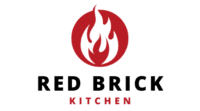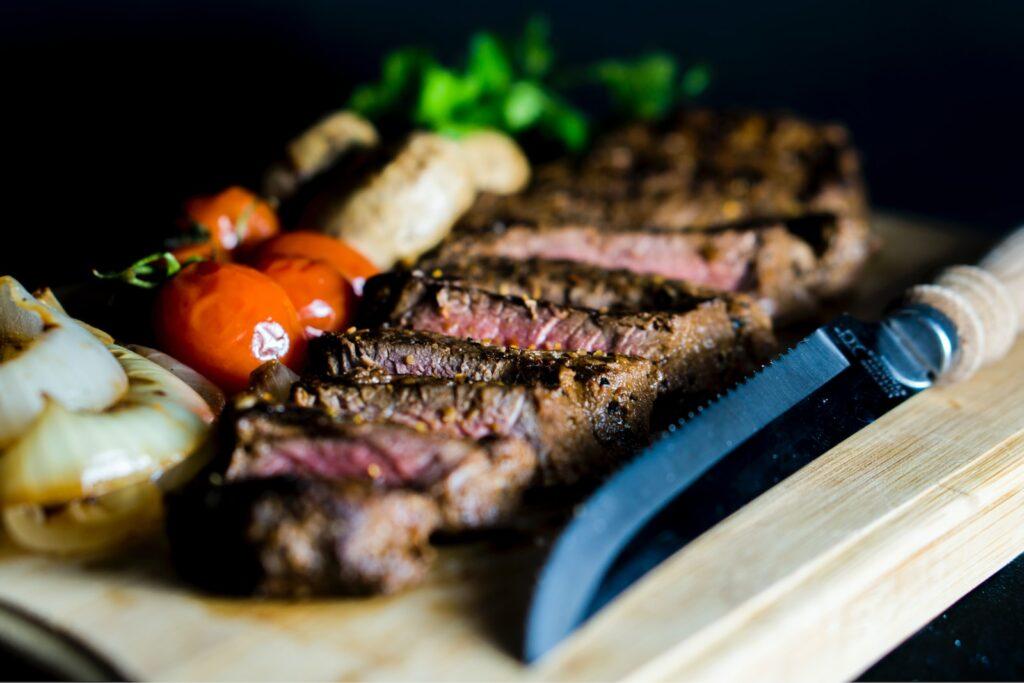What is Kosher BBQ?
Kosher barbecue is a culinary phenomenon that combines the principles of kosher food preparation with the art of barbecue. It offers a unique and flavorful dining experience for those who adhere to kosher dietary laws. Kosher barbecue adheres to the dietary guidelines outlined in Jewish law, which prohibits the consumption of certain meats and the mixing of meat and dairy products.
In kosher Bar-B-Q, specific cuts of meat are used, such as beef, lamb, and poultry, which have been properly slaughtered and prepared according to kosher standards. These meats are then seasoned, marinated, and slow-cooked on a grill or smoker, allowing the flavors to develop and create a tender and juicy result.
The kosher barbecue scene has seen a rise in popularity in recent years, with a growing number of kosher barbecue restaurants and food trucks catering to the demand. These establishments offer a variety of dishes, including smoked brisket, grilled chicken, ribs, and sausages, all prepared in accordance with kosher guidelines.
Some popular kosher barbecue restaurants have gained recognition for their exceptional cuisine. For example, The Brazilian BBQ in Philadelphia is known for its authentic Brazilian kosher barbecue, offering a delectable selection of churrasco-style grilled meats. Holy Smokes Kosher BBQ in Los Angeles is another standout establishment, combining traditional barbecue techniques with kosher ingredients to create mouthwatering dishes.
If you’re interested in exploring the world of kosher barbecue, you may also want to search for related keywords or queries such as “kosher barbecue near me,” “kosher barbecue recipes,” “kosher barbecue sauce,” or “kosher barbecue festivals.” These searches can help you discover local kosher barbecue spots, find recipes to try at home, or learn about upcoming events and festivals dedicated to kosher barbecue.
Overall, kosher barbecue offers a unique blend of cultural traditions and culinary excellence. Whether you’re seeking a kosher dining experience or simply curious about the flavors and techniques of kosher barbecue, you’re sure to find a world of delicious options to explore.
Frequently Asked Questions about Kosher BBQ
What do you serve at a kosher BBQ?
Kosher BBQ typically includes a variety of grilled meats such as beef, chicken, lamb, and turkey. Additionally, grilled vegetables, salads, and side dishes like coleslaw and potato salad are commonly served.
Can BBQ be kosher?
Yes, BBQ can be made kosher by following specific dietary guidelines. The meat used must come from a kosher animal, be slaughtered and prepared according to kosher laws, and not mixed with dairy products. Additionally, utensils, grills, and surfaces used for kosher BBQ should be separate from those used for non-kosher food.
How do you make a kosher BBQ?
To make a kosher BBQ, you need to ensure that all ingredients and cooking processes comply with kosher dietary laws. This includes using kosher-certified meat, avoiding mixing meat with dairy, and ensuring all utensils and surfaces are kosher.
What are the three types of kosher foods?
The three types of kosher foods are:
- Meat: Kosher meat must come from an animal that is slaughtered and prepared according to kosher laws.
- Dairy: Kosher dairy products come from animals that have been properly milked and processed according to kosher standards.
- Pareve: Pareve refers to foods that are neither meat nor dairy and can be consumed with either type of food. Examples include fruits, vegetables, grains, and fish.
What are popular kosher meats?
Popular kosher meats include beef, chicken, lamb, turkey, and veal. These meats must be prepared according to kosher standards, which involve specific slaughtering and preparation processes.
Why is KFC not kosher?
KFC (Kentucky Fried Chicken) is not kosher because it does not adhere to the dietary laws of kashrut. The preparation methods, ingredients, and equipment used in KFC restaurants do not meet the strict requirements for kosher certification.
What kosher foods are not allowed?
Kosher dietary laws prohibit the consumption of certain foods, including pork and pork products, shellfish, insects, and animals that are not properly slaughtered according to kosher standards. Mixing dairy and meat products is also not allowed.
Can fish meat be on the same grill kosher?
According to kosher dietary laws, fish and meat should be prepared and cooked separately. They should not be mixed or cooked together on the same grill or surface.
Is kosher the same as no pork?
Kosher dietary laws encompass more than just the prohibition of pork. Kosher certification ensures that food products meet specific requirements outlined in Jewish dietary laws, which include the proper slaughtering and preparation of animals, the separation of meat and dairy products, and adherence to other dietary restrictions.
Can you kosher your own meat?
Yes, it is possible to kosher your own meat at home. However, the process can be complex and requires specific knowledge and adherence to kosher guidelines. It is recommended to consult with a knowledgeable authority or kosher certification agency for guidance.
Why kosher salt for BBQ?
Kosher salt is commonly used in BBQ recipes because of its large, coarse grains that make it easy to sprinkle evenly over meat. The texture of kosher salt also helps to draw out moisture from the meat, which can enhance flavor and improve the texture of the BBQ.
Can Jews mix fish and cheese?
According to kosher dietary laws, fish and dairy products should not be mixed or consumed together. Mixing fish and cheese is not traditionally allowed in kosher cuisine.
Why can’t meat and dairy touch in kosher?
Kosher dietary laws prohibit the mixing of meat and dairy products as they come from different categories of kosher foods. Mixing meat and dairy violates the principle of not “boiling a kid in its mother’s milk,” which is mentioned multiple times in the Torah.
Does kosher law prohibit mixing of milk and meat?
Yes, kosher dietary laws strictly prohibit the mixing of milk and meat. This means that kosher meals must be prepared and consumed separately from each other, using separate utensils, dishes, and cooking surfaces.
Can Jews eat rare steak?
Jews who follow kosher dietary laws may eat rare steak as long as it comes from a kosher animal and is prepared according to kosher guidelines. The cooking method and level of doneness do not impact the kosher status of the meat.
Can you have kosher bacon?
No, bacon made from pork is not kosher. Pork is considered non-kosher according to Jewish dietary laws, and any products derived from it, such as bacon, are not permitted in a kosher diet.
Are eggs kosher?
Eggs can be kosher, provided they come from a kosher species of bird and do not contain blood spots. Eggs should also be prepared and cooked in accordance with kosher guidelines.
Why do you salt meat before BBQ?
Salting meat before BBQ helps to enhance the flavor and texture of the meat. Salt draws out moisture from the meat, which then gets reabsorbed, resulting in improved juiciness and flavor.
How to make eggs kosher?
To make eggs kosher, they should come from a kosher species of bird, be free of blood spots, and be prepared and cooked in accordance with kosher guidelines. It is recommended to purchase eggs with a reliable kosher certification.
What is the best kosher salt for BBQ rubs?
There are several brands of kosher salt that are commonly used in BBQ rubs, including Diamond Crystal Kosher Salt and Morton Coarse Kosher Salt. Both options are popular among BBQ enthusiasts and provide excellent results in rub recipes.
What is kosher meal rule?
The kosher meal rule refers to the dietary laws that dictate what foods are considered kosher and how they should be prepared and consumed. These rules ensure that food adheres to specific guidelines outlined in Jewish religious texts.
What is a typical kosher kitchen?
A typical kosher kitchen follows specific guidelines to prevent the mixing of meat and dairy. It will have separate sets of dishes, utensils, and cookware for meat and dairy products. Additionally, the kitchen may have designated areas for preparing meat and dairy foods.
What is a typical kosher meal?
A typical kosher meal consists of separate courses for meat and dairy dishes. Meat and dairy products are not served together during the same meal. The specific dishes and ingredients may vary based on cultural and personal preferences.
Can I use table salt instead of kosher?
Table salt can be used as a substitute for kosher salt in recipes. However, it is important to note that table salt is more concentrated than kosher salt, so you may need to adjust the amount accordingly.
Is Morton salt kosher salt?
Morton Salt produces both kosher salt and non-kosher salt varieties. Morton Coarse Kosher Salt is a popular brand of kosher salt used by many cooks and BBQ enthusiasts.
How long to salt meat before BBQ?
The time needed to salt meat before BBQ can vary depending on the thickness and size of the meat. As a general guideline, you can salt meat anywhere from 30 minutes to several hours before cooking. For larger cuts of meat, such as brisket, overnight salting is common.
What kind of salt does Rachael Ray use?
Rachael Ray, a celebrity chef, often uses kosher salt in her recipes. However, she may use different varieties of salt based on the specific requirements of her dishes.
What salt do steakhouses use?
Steakhouses may use different types of salt depending on their preferences. Kosher salt, sea salt, or coarse salts are commonly used to season steaks and other meats.
What salt is closest to kosher?
Kosher salt is unique in its texture and size of grains, which make it distinct from other types of salt. While there may be similar coarse salts available, kosher salt remains the most commonly used salt for kosher food preparation.
Wrapping It Up
In conclusion, kosher BBQ is a culinary phenomenon that combines the principles of kosher food preparation with the art of barbecue. It offers a unique and flavorful dining experience for those who adhere to kosher dietary laws. Kosher barbecue involves using specific cuts of meat, such as beef, lamb, and poultry, that have been properly slaughtered and prepared according to kosher standards. These meats are then seasoned, marinated, and slow-cooked on a grill or smoker to develop rich flavors and achieve a tender and juicy texture.
The popularity of kosher barbecue has been on the rise, leading to the emergence of kosher barbecue restaurants and food trucks catering to the demand. These establishments serve a variety of dishes, including smoked brisket, grilled chicken, ribs, and sausages, all prepared in accordance with kosher guidelines. Notable kosher barbecue restaurants, such as The Brazilian BBQ in Philadelphia and Holy Smokes Kosher BBQ in Los Angeles, have gained recognition for their exceptional cuisine that combines traditional barbecue techniques with kosher ingredients.
If you’re interested in exploring the world of kosher barbecue, you can search for related keywords or queries like “kosher barbecue near me,” “kosher barbecue recipes,” “kosher barbecue sauce,” or “kosher barbecue festivals.” These searches can help you discover local kosher barbecue spots, find recipes to try at home, or learn about upcoming events and festivals dedicated to kosher barbecue.
Kosher barbecue offers a delicious fusion of cultural traditions and culinary excellence. Whether you’re seeking a kosher dining experience or simply curious about the flavors and techniques of kosher barbecue, you’ll find a world of delicious options to explore.
Last updated: October 23, 2023


